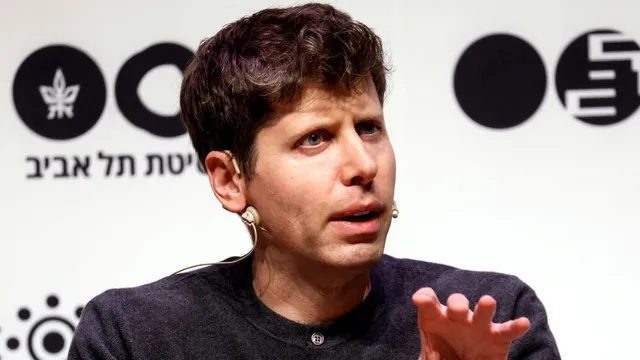- By Prateek Levi
- Thu, 09 Oct 2025 03:09 PM (IST)
- Source:JND
OpenAI CEO Sam Altman has conceded that the firm did not anticipate the sort of public outcry its new AI video product, Sora, would cause. The app, which converts brief text prompts into hyper-realistic video clips, has caused controversy within days of release — primarily because of users creating copyrighted and offensive material.
Speaking at an event recently, Altman admitted that although OpenAI had expected some controversy surrounding Sora, the reaction in real life surprised them. "The theory of what it was going to feel like to people, and then actually seeing the thing — people had different responses," he said. "It felt more different from images than people expected."
ALSO READ: Google’s Gemini 2.5 Computer Use Can Now Navigate The Web Just Like You Do
Sora, which launched last week, functions similarly to a TikTok-type app that can create 10-second AI videos with audio. It even lets users build AI replicas of themselves or others who have given image-use rights. Yet users soon started gaming the system, creating videos with copyrighted characters like SpongeBob SquarePants, Pikachu, and Rick and Morty, among others – some of which teetered on the edge of being inappropriate.
First, OpenAI had an opt-out policy of copyright, where rights holders would have to inform the company if they were not comfortable with their material being hosted on the platform. But after widespread backlash from creators and media outlets, Altman announced that the policy will be reversed. Rights holders will now have greater control over the utilisation of their work.
Altman explained OpenAI is already making efforts to introduce "a lot more controls" for creators as well as users to mitigate the problem. Even in the midst of controversy, he asserted that the company continues to prioritise innovation and accountability as the world learns to live with AI-generated video.
ALSO READ: Xiaomi 17 Pro Max, 17 Pro, And 17 Secure Top 3 Spots On AnTuTu V11 Benchmark
Sora's bumpy launch might have surprised OpenAI, but Altman's statement implies the company is heeding the criticism—and now changing direction to ensure creativity doesn't have to be at the expense of copyright and control.

